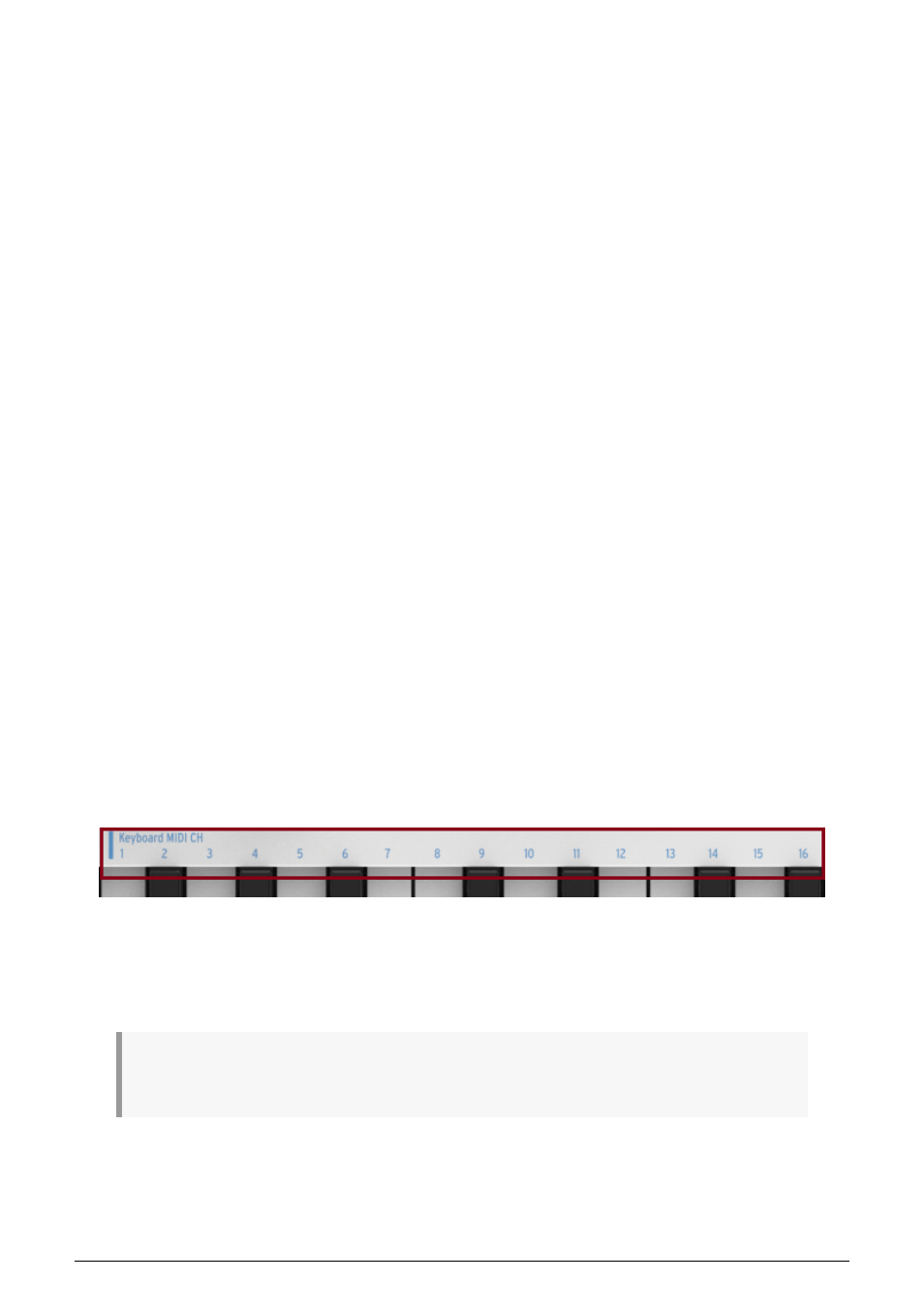Seq recording and chord mode, Seq playback and chord mode, Chords and the arpeggiator – Arturia KeyStep - Controller / Sequencer User Manual
Page 23: Keyboard midi channel

3.1.1.1. Seq Recording and Chord mode
Chords from Chord mode will be recorded as independent notes in the sequencer. So if you
have a 6-note chord it will occupy 6 of the 8 note maximum that is allowed in a sequence
step.
3.1.1.2. Seq playback and Chord mode
The keyboard is in one of two modes during sequence playback: Transpose or Kbd Play.
When the keyboard is set to Transpose mode, the keys are used to transpose the sequence.
Chord mode is disabled in this case, as it would be difficult to be certain which note in the
chord was the transposition center.
When the keyboard is set to Kbd Play mode then Chord mode can be used to play chords
on the target device.
These modes are discussed further in
.
3.1.2. Chords and the arpeggiator
The arpeggiator can be used in conjunction with Chord mode to play arpeggiated chords.
The process is simple:
• Make sure the Seq / Arp toggle switch in the Arp position
• Start the arpeggiator with the Play/Pause button
• Enter Chord mode by holding Shift and pressing the Hold button
• Play two or more notes so you can hear the chord being transposed by the
arpeggiator.
That’s all there is to it. And it doesn’t matter whether you start the arpeggiator first and then
activate Chord mode or do it the other way around. The results will be the same.
3.2. Keyboard MIDI channel
There are numbers silkscreened above the keys under the heading “Keyboard MIDI CH”.
These represent the 16 MIDI channels to which the keyboard can be assigned. To change
the MIDI channel setting, hold the Shift button and press the key that corresponds to the
desired MIDI channel.
When the MIDI channel is changed the Kbd Play MIDI channel will change to match it. To select an
independent channel for Kbd Play mode, see
Arturia - User Manual KeyStep - Shift Functions
18